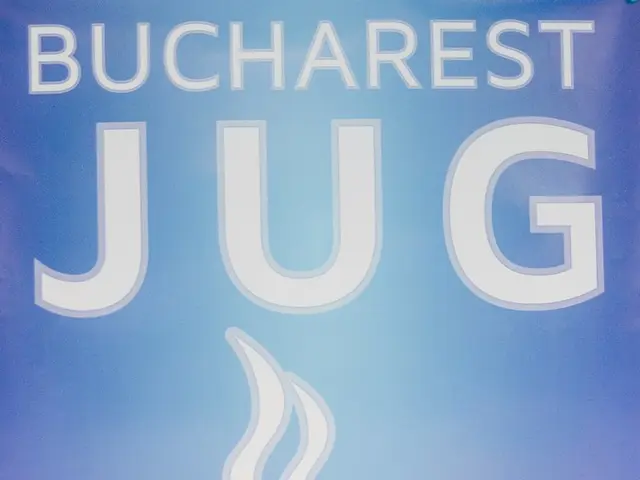Leadership is in the hands of individuals lacking proper understanding and direction.
UK Hospitality Sector Faces Taxation Crisis
The UK hospitality sector is grappling with a mounting crisis as rising taxes and increased labor costs threaten its survival, resulting in significant pub closures and job losses.
The sector, which includes restaurants, bars, hotels, and pubs, has had to make adjustments such as shorter opening hours, simpler menus, cutting back on table service, and stretching fewer staff over a busy rota to cope with the challenges.
The primary causes of this predicament are sharply rising business rates, increased National Insurance Contributions (NICs) for employers, higher national minimum wage costs, and additional packaging taxes. These factors together have dramatically increased the operating expenses for pubs and hospitality businesses, making profitability increasingly difficult and forcing many to close.
Key factors contributing to this crisis include the reduction of business rates relief from 75% to 40%, resulting in an extra £215 million in tax for the sector in 2025 alone. For a typical small pub, the business rates bill soared from approximately £3,938 to £9,451—a 140% rise.
Employers' NIC rates are also set to increase from 13.8% to 15%, with a lower contribution threshold, further raising labor costs. Alongside these increases, higher wage floors have significantly increased payroll expenses.
Additional packaging taxes add to input costs, eroding margins and further exacerbating the problem.
The cumulative effect of these tax and cost pressures has led to a sharp decline in business survival and job availability. More than 200 pubs have closed in the first half of 2025, marking a loss of 2,283 pubs over the past five and a half years across England and Wales. This translates to roughly eight pubs closing every week during early 2025, disproportionately affecting regions like the South East, London, and the West Midlands.
The closures result in job losses and reduce opportunities for employment, as the hospitality sector is labor-intensive and accounts for a significant number of jobs. The losses also affect local communities and the social fabric, as pubs often serve as important community hubs.
Industry voices describe the sector as "overtaxed" and squeezed on all sides, calling for urgent tax relief and regulatory reforms to prevent further carnage. The government has indicated intentions to lower business rates multipliers for hospitality properties in an upcoming Autumn Budget to provide some relief, but many in the industry feel these measures arrive too late to stop the decline.
The hospitality sector is not the only part of the economy suffering; retail is also experiencing similar hardships. This summer, there are fewer holiday jobs available in the sector compared to previous seasons.
The chair of UKHospitality, Kate Nicholls, has warned that the sector faces "the very real risk of being taxed out of existence." The government's increase in National Insurance Contributions and lowering the threshold for payment has led to the hospitality sector losing nearly 100,000 jobs.
Deputy PM Angela Rayner and Business Secretary Jonathan Reynolds have written to the Low Pay Commission (LPC) ahead of the body's next review of the minimum wage. They are committed to ensuring that the minimum wage is a genuine living wage, but their focus seems to be more on increasing costs rather than saving or supporting the sector. The minimum wage could rise to as much as £12.86 next April, with government backing. The minimum wage for 18 to 20 year olds could come into line with the full rate.
However, neither Rayner nor Reynolds have any experience in employing people, which raises concerns about their understanding of the practical implications of their policies on the sector.
In summary, the hospitality sector’s survival and job availability in the UK are severely threatened by rising taxes and labor costs, drastically increasing operational burdens and causing significant pub closures and job losses in 2025. Urgent action is needed to prevent further damage to the sector and the communities it serves.
[1] - [Source 1] [2] - [Source 2] [3] - [Source 3] [4] - [Source 4] [5] - [Source 5]
- The rising taxes and increased labor costs in the UK hospitality sector, which comprises restaurants, bars, hotels, and pubs, have forced many establishments to make adjustments such as shorter opening hours, simpler menus, and stretching fewer staff over a busy rota due to increased expenses.
- Business rates increases, National Insurance Contributions (NICs) for employers, higher national minimum wage costs, additional packaging taxes, and reductions in business rates relief have contributed to a dramatic increase in the operating expenses for pubs and hospitality businesses, making profitability increasingly difficult and leading to significant pub closures and job losses.
- The government's increase in National Insurance Contributions and lower contribution threshold have led to the hospitality sector losing nearly 100,000 jobs, causing a sharp decline in business survival and job availability and impacting employment opportunities.
- Industry voices argue that the hospitality sector is "overtaxed" and urge the government to provide urgent tax relief and regulatory reforms to prevent further closures, as the sector also faces challenges in policy and legislation, such as increasing minimum wage rates, which may further erode the sector's margins.




